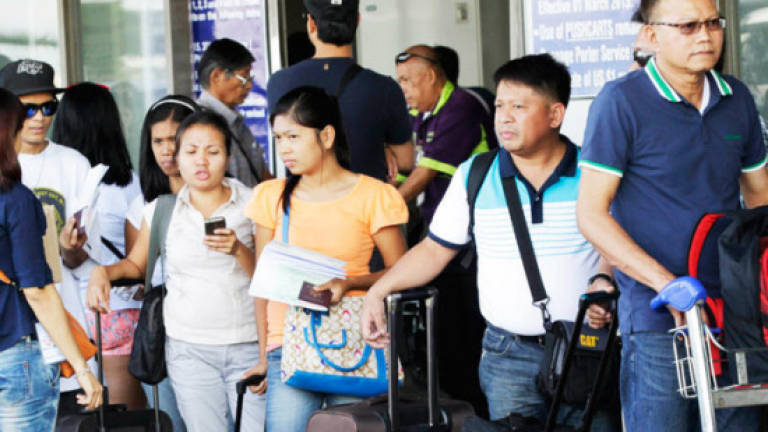Philippines sees Asean agreement on migrant workers benefiting Filipinos

MANILA: The Philippines, which has close to two million citizens working overseas, believes that Asean's move to sign a declaration on migrant workers would benefit over 212,000 Filipino workers in Southeast Asia.
Its Labour Secretary, Silvestre H. Bello III, said the majority of Philippine migrant workers in the region were employed in Singapore and Malaysia, and the Asean consensus was to strengthen regional cooperation in preventing abuses, exploitation and violence towards migrant workers.
"In cases where Filipino migrant workers are imprisoned, they will have rights no less favourable than those applied to the local workers. They also have the right to file grievances with the relevant authorities in the countries they are working in," he added.
A decade after the signing of the Cebu Declaration on the Protection and Promotion of the Rights of Migrant Workers, the Asean Leaders are set to sign the Asean Consensus on the Protection and Promotion of the Rights of Migrant Workers at the end of the 31st Asean Summit and Related Summits here Tuesday.
The Asean Consensus document, among its many important provisions, upholds fair treatment of migrant workers with respect to gender and nationality, provides for visitation rights by family members, prohibits confiscation of passports, and overcharging of placement or recruitment fees.
It also protects against violence and sexual harassment in the workplace, regulates recruiters for better protection of workers, and respects their right to fair and appropriate remuneration and benefits and their right to join trade unions and associations.
Like all Asean agreements, the implementation of the Asean Consensus, which is non-legally binding, would be subject to the respective laws of the organisation's member countries, the host said in a statement.
Last week, Philippine Department of Foreign Affairs spokesman Robespierre Bolivar said the agreement was "a centrepiece of the Philippine chairmanship" of Asean.
According to the World Bank, nearly seven million or two-thirds of about 10 million international migrants living and working in Asean, come from within the region.
Cambodia, Indonesia, Myanmar, the Philippines and Vietnam are seen as the main "sending" countries, while Malaysia, Singapore and Thailand are the main "receiving" countries. — Bernama